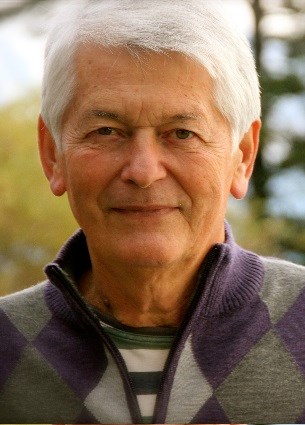Looking toward the October 20 municipal election, the Undercurrent is asking politicians about their experiences running for municipal office. Our third Q&A is with councillor Michael Kaile.
What do you do as a councillor?
The role of a council is governance, meaning we’re responsible for the research and negotiations needed for decision-making and policy-setting, as well as for allocating authority and accountability. Our role does not include municipal management or policy administration, which are in the very capable hands of Bowen’s municipal staff.
What do you wish you’d known before running for council?
To be better prepared to deal with how long it takes to get things done. Looking back on our council’s first six months in office, I wish we could have postponed some important decisions until everyone was 100 per cent familiar with the issues.
What advice would you give to an aspiring councillor?
Put your personal ideology and preferences aside as far as possible and aim to be independent and open to reason on all subjects. You’re representing the entire community, so judge each and every issue on its merits.
What was the learning curve like for a first-time councillor?
The learning curve for a new councillor is steep! Assuming one knows nothing, but is eager to fill the gap, is a great place to start! My background in business was some advantage in understanding the financial aspects of our role, but a new councillor must be prepared for a good deal of homework to understand how a municipality functions.
What’s the most rewarding day you’ve had as a councillor?
Not just one day, but many -- ranging from seeing Snug Cove House move ahead to the opening of the Bike Park to name just two. Rewarding days have hugely outnumbered the others.
How has your hospitality/tourism experience informed your council decisions?
No question, my background in hospitality is significant in understanding both the positives and negatives of the industry on Bowen. Clearly, tourism can deliver great community benefits to the island. However, I recognise the potential downside in terms of managing seasonal volume and feel our decisions need to become far more strategic. This is no longer a visitor arrival numbers game. We need a commitment to providing year-round prosperity.
What kind of work goes into deciding your position on an issue?
There is no single answer, as the myriad of issues council faces require different approaches. One learns very quickly to look at all points of view and listen intently. It’s amazing what one learns by being open, and the influence that has on decisions.
What qualities will you be looking for when you vote for the next mayor and council?
I’d look for unbiased thinkers with great common sense, remembering it is the good of the community that is paramount. It may be tough on the ego, but the person elected is just one vote out of seven and the elected official must bear in mind that they are part of a team that needs to be cohesive.
What do you think Bowen will look like in 20 years?
Change will continue apace, as it’s impossible to ignore our proximity to an ever-growing Vancouver. It will be important to develop “on Bowen” businesses and focus on the island as a place to live and work. We will always have a commuting population, so efficiency in delivering services to accommodate that reality is vital. Assuming we can achieve balance, the island will continue to be wonderful place to live with a vibrant community, preserving the values that bought us here in the first place. However nothing stays the same…



